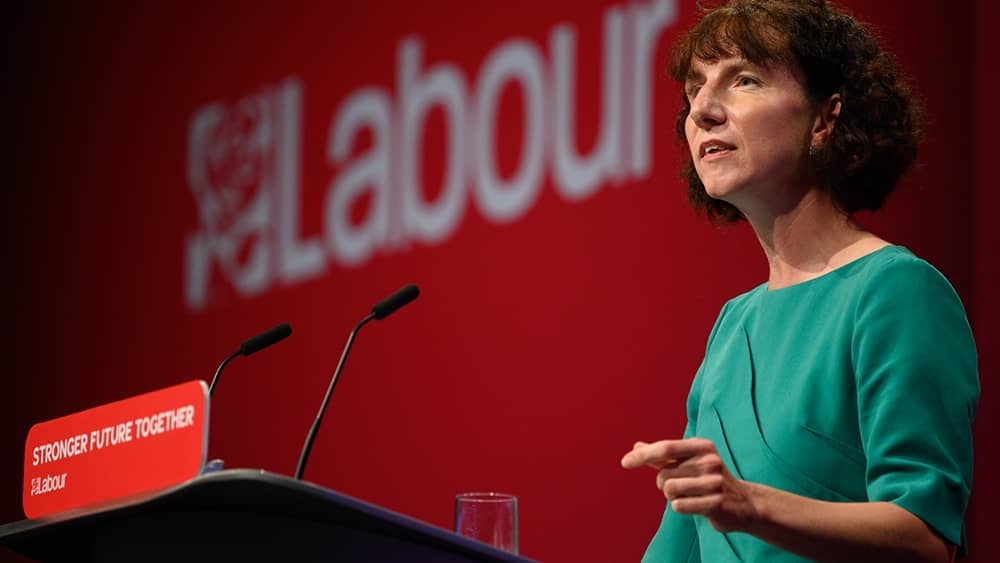After a relatively successful spell attempting to side itself with ordinary folk, Labour has lurched back into hardline identity politics with a particular focus on the issue of race.
Over recent days some of the party’s leading figures have stoked up the idea of Tory Britain being a hotbed of discrimination. Shadow foreign secretary David Lammy is leading the way with a call for a posthumous royal pardon of those who took part in an anti-slavery uprising in Guyana in 1823. According to Lammy, the pardon would help Britain find a ‘path to repair’ in regard to its ‘acknowledgment of its role in the history of slavery’.
Yet given that Guyana has been independent since 1966 and a republic with its own president since 1970, a royal pardon being issued would in itself be a kind of bizarre act of colonialism.
Lammy’s raising of the matter serves as a reminder that Labour has still not disavowed its 2019 manifesto policy requiring ‘an audit of the impact of Britain’s colonial legacy to understand our contribution to the dynamics of violence and insecurity across regions previously under British colonial rule’.
Anyone doubting that this is intended as a precursor to the funding of reparations by UK taxpayers should refer to a Corbyn-commissioned Labour report from a year ago into the ‘British state’ that suggested:
The British state should set up a reparations fund as part of the constitution, which offers financial assistance to communities across the world that can show loss and detriment as a result of the actions of the British state.
These renewed lurches into race-baiting by Labour will be hated by Red Wall voters
While Lammy is busy stirring up ill-feeling about the distant past, Labour party chairman Anneliese Dodds is seeking to hype up the idea of racial prejudice being to blame for any passing disparity in modern Britain.
On Sunday she highlighted some research by Labour’s own policy wonks that purported to show that the majority of black households had under £1,500 in savings to help them ride out current cost of living pressures. Labour claimed that 78 per cent of households led by someone black did not have such a financial safety net, compared to 48 per cent of households nationwide.
One might think that a party founded to fight against class inequalities might have figured this could be due to a higher percentage of black households being working-class, or perhaps differing cultural attitudes towards saving for a rainy day, but no, Ms Dodds was quite sure racism lay at the heart of it.
‘Under the Tories, four in five black people have less than £1,500 in savings to cope with soaring bills…we’d bring in a Race Equality Act to tackle structural racial inequality at source,’ she tweeted.
On Monday, Ms Dodds was at it again, this time leaping on a report about health inequalities compiled for the NHS by some sociologists from the University of Manchester and given extensive coverage in the Guardian. This found that radical action is needed to tackle ‘overwhelming’ minority ethnic health inequalities.
Rather than implying that the saintly NHS has become an instrument of white racism, one might have expected Labour to promote a responsible debate about the actual causes of poorer health outcomes in some ethnic minority groups – and again an overlap with class inequalities or cultural lifestyle issues might have suggested themselves.
But for Ms Dodds racism was again in the dock, as she promised: ‘Labour’s Race Equality Act will tackle structural racial inequality at source’.
The implication, as far as I can see, is that any differential outcome that can be linked to race should lead to extra resources flowing to members of any under-performing minority group. More financial redistribution to black households than white ones. Priority clinics for patients from ethnic minorities. That kind of thing.
These renewed lurches into race-baiting by Labour will be hated by Red Wall voters, should they ever get to hear of them and ought to be meat and drink to a competent Conservative party. But so far they have gone pretty much unanswered.
The recent departure of Munira Mirza from the No. 10 policy unit has clearly left a gaping hole. It was Mirza who set up the Commission on Race and Ethnic Disparities, which last year found extensive evidence indicating that racism was not the main factor leading to differing outcomes between ethnic groups. No government ministers look set to fill her vacuum. A cabinet in which the Home Secretary, Chancellor, Health Secretary, Education Secretary, Business Secretary and several others are from non-white backgrounds should be taking the fight to Labour about its unfair characterisation of modern Britain.
Now would be the perfect time for some of these ministers to step forward and make the case that Britain is one of the least racist countries in the world and a place that should be aspiring to a post-racial politics rather than buying into Labour’s relentless grievance-mongering.
If one of them can, they may seize a moment. There could be one very big promotion just around the corner.







Comments